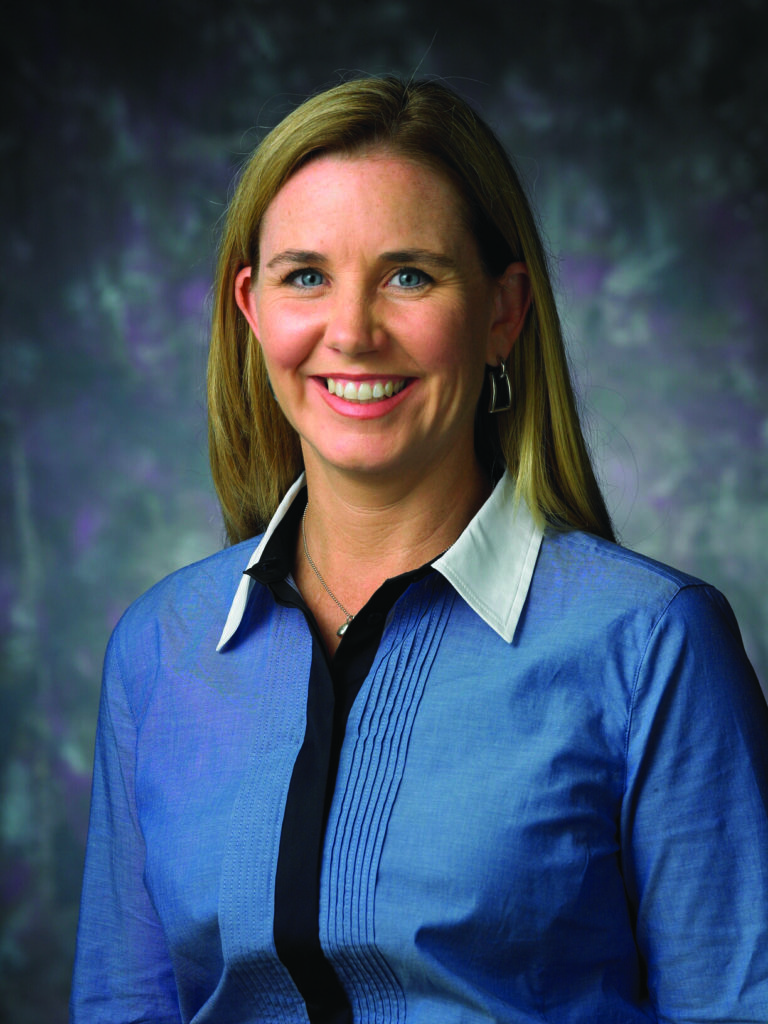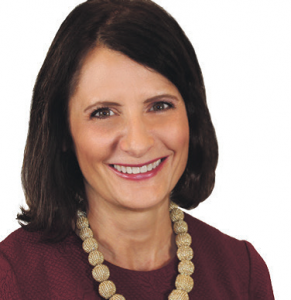
*This article first appeared in the Fall 2022 issue of Arizona Physician magazine, a publication of the Maricopa County Medical Society.
By Brian Powell
Flinn Foundation
A primary care physician may be accustomed after an appointment to guiding patients down the hall for a urine test or lab work.
In recent years, physicians are also increasingly likely to find themselves introducing a patient to a licensed counselor or social worker in the office next door.
The integration of behavioral health into a primary care practice, while not new, is becoming more prevalent in recent years in both Arizona and across the nation. Some of the reasons leading to this change include a recognition of a mental health crisis in this country, policy changes at the federal and state levels, and the option for primary care physicians to contract with companies to provide mental health services in person or virtually.
One such company is Scottsdale-based evolvedMD, which is helping HonorHealth, Apricus Health and numerous primary care practices convert to integrated care by embedding licensed behavioral health professionals on site. Another example is Adelante Healthcare, a federally qualified health center serving Maricopa County for more than four decades, which offers fully integrated care at its Peoria location with plans to expand the model to all nine clinic locations by the end of next year.
Integrated care advocates point to easier access to behavioral health specialists and the destigmatizing of mental health as key benefits to this model.

“There has been a real openness to it in our patients,” said Dr. Tiffany Pankow, HonorHealth vice president, chief of caregiver wellness and patient experience, and a family medicine physician. “I would say 8 or 9 out of 10, at least, want to meet and talk with the behavioral specialists right then or the next day. And it’s been a huge satisfier for our physicians, too. They have really embraced it.”
Models of Integrated Care
A patient visiting a primary care physician who practices collaborative care will typically complete a survey that screens for issues such as anxiety and depression. After the visit with the physician, a patient who is suffering from a mental health condition will be introduced to a licensed professional or associate counselor, clinical social worker, or behavioral health consultant and spend time in a short session, ideally the same day or in the next few days.
Under this model, a patient will often return to the primary care office for up to about five sessions with the same clinician. The reasons for the visit could be to learn ways to cope with anxiety and depression, or how to better manage diabetes with diet, a discussion about the importance of taking medication, or addressing obesity, insomnia, or smoking.
The physician and mental health professional share a single electronic medical record and create a treatment plan, and the primary care physician has the option to prescribe medication as appropriate. The patient is billed under primary care, whether it’s a commercial insurance plan, Medicare, or Medicaid. If the patient’s mental health needs are more complex, the patient would be referred to an off-site psychiatrist or counselor.

evolvedMD co-founder and co-CEO Erik Osland said his company’s model for mild-to-moderate patients is to manage them on-site at the clinic with their own licensed employees, who are equipped to teach skills and/or provide cognitive behavioral therapy, motivational interviewing, and behavioral activation. The company also supplies case managers for patients with more high-risk challenges, such as bipolar disorder or PTSD, and helps them schedule appointments off-site.
The company, which was launched five years ago, provides behavioral health care for more than 90 primary care providers across 20 sites in Arizona and Utah. In addition to its sites in Maricopa County, evolvedMD is operating within the state in Flagstaff, Sedona, and Tucson.
Pankow said it was more than two years ago when HonorHealth began looking into the collaborative care model and started its relationship with evolvedMD. Pankow said by the end of this year, collaborative care will be in all of HonorHealth’s primary care clinics.
“Primary care is where people go first when struggling with behavioral health and having a specialist right in the clinic allows us to work as a team together and get patients right into the care that they need,” Pankow said.
Susan Boyles, director of behavioral health for Adelante Healthcare and a licensed clinical social worker, tells the story of a woman visiting her primary care doctor for uncontrolled diabetes, and then meeting with her.
“Things actually clicked why taking her medication was important, and why emotions and stress can impact eating,” Boyles said. “It was really good to be able to have that conversation, and you understand why treating the whole person is ultimately the best thing we can do.”
Davis Plunkett, a licensed clinical social worker and Adelante Healthcare behavioral health area operations manager, added: “It’s about breaking down that stigma and having patients understand that mental health is an aspect and extension of their health. Whether it’s basic, everyday stress or clinical depression, that can lead to a lot of negative health outcomes.”
Policy Changes Encourage Integration
In 2017, the Arizona Health Care Cost Containment System began an initial $300 million, five-year program to provide incentives to encourage primary care and behavioral health groups and others to switch to an integrated care model in which providers would be
screening for mental health needs.
The next year, roughly 1.5 million members of AHCCCS, or the state’s Medicaid program, transitioned into an integrated health plan for both physical and behavioral health benefits.
The collaborative care model was also a beneficiary of Arizona HB 2454, signed into law by Gov. Doug Ducey in 2021, which expanded telemedicine access for Arizona patients and provided equal reimbursement to physicians. This option is especially critical for rural patients or clinics without a behavioral health professional on site.

Dr. Caroline Carney, the Phoenix-based chief medical officer of Magellan Health and president of Magellan Behavioral Health, and a board-certified internist and psychiatrist, said telehealth can greatly expand the reach of mental health expertise within collaborative care.
“The beauty is you do not have to have a person down the hall; it can be a psychiatrist on Zoom,” Carney said. “It allows a behavioral health professional to work with different physicians from different offices throughout the day.”
On a national scale, the Collaborative Family Healthcare Association advocates for policies that will help increase the integration of physical and behavioral health. CFHA was started about 25 years ago by behavioral health providers and family physicians who wanted to provide a more comprehensive type of care, said Julie Geiler, CFHA policy coordinator, and has grown into a national membership organization of nearly 1,750 members from 29 states, including close to 100 physicians.
“There is no behavioral health equivalent to primary care,” Geiler said. “By integrating primary care where people are comfortable getting care, with long relationships and timely access in acute situations, we are building continuity between medical health needs and behavioral health needs.”
The organization’s annual conference, which attracts healthcare professionals, foundations, payors, and others playing a role in integrated care, will be held in Phoenix in 2023.
A Benefit to Patients—and Physicians
Advocates of increasing integrated practices in the future point to not only improved patient outcomes, but physician well-being as well. Supporters of the collaborative care model say primary care physicians have less risk of burnout and benefit from seeing improved health outcomes for their patients.

Dr. Sandra Zebrowski, corporate medical director, behavioral health at Blue Cross Blue Shield of Arizona, said the collaborative care model provides for a better opportunity to reach the “Quadruple Aim.” In addition to providing the established “Triple Aim” goals of higher quality and more cost-effective care with improved patient satisfaction, the “Quadruple Aim” adds provider satisfaction into the mix.
Zebrowski acknowledges that for practices not currently using collaborative care, there would be changes to the business model, the training of office staff, and modifying of procedures and physical space to accommodate the mental health professionals. In general, Zebrowski said, this is not a business model that loses money for the primary care physician.
“It can be a big ask, but from a population health perspective and issues with mental health preceding the COVID-19 pandemic and made worse by the pandemic, we need physicians to be a part of the solution and integrating care is a possible solution for our nation’s mental health crisis,” Zebrowski said. “Giving people access and an entry point through primary care can be life-saving.”
Today, evolvedMD has 80 employees, with plans to be near 125 workers in Arizona and Utah by the end of 2022. The company also received $5.4 million in Series A funding earlier this year, which will be used to continue scaling the company and expand in additional Western states and the Midwest.
It wasn’t that long ago when Osland remembers knocking on hundreds of doors—and mostly coming up empty.
But times have changed, and physicians realize their patients need help.
“We are the relief valve, I think, in a lot of ways for our providers, and many more people are now open to it,” Osland said. “Modern primary care just doesn’t focus on the body, but on the mind, too. “If they are not doing it today, in two years they will be, and we will be ready for them.”
Read the Fall 2022 issue of Arizona Physician magazine